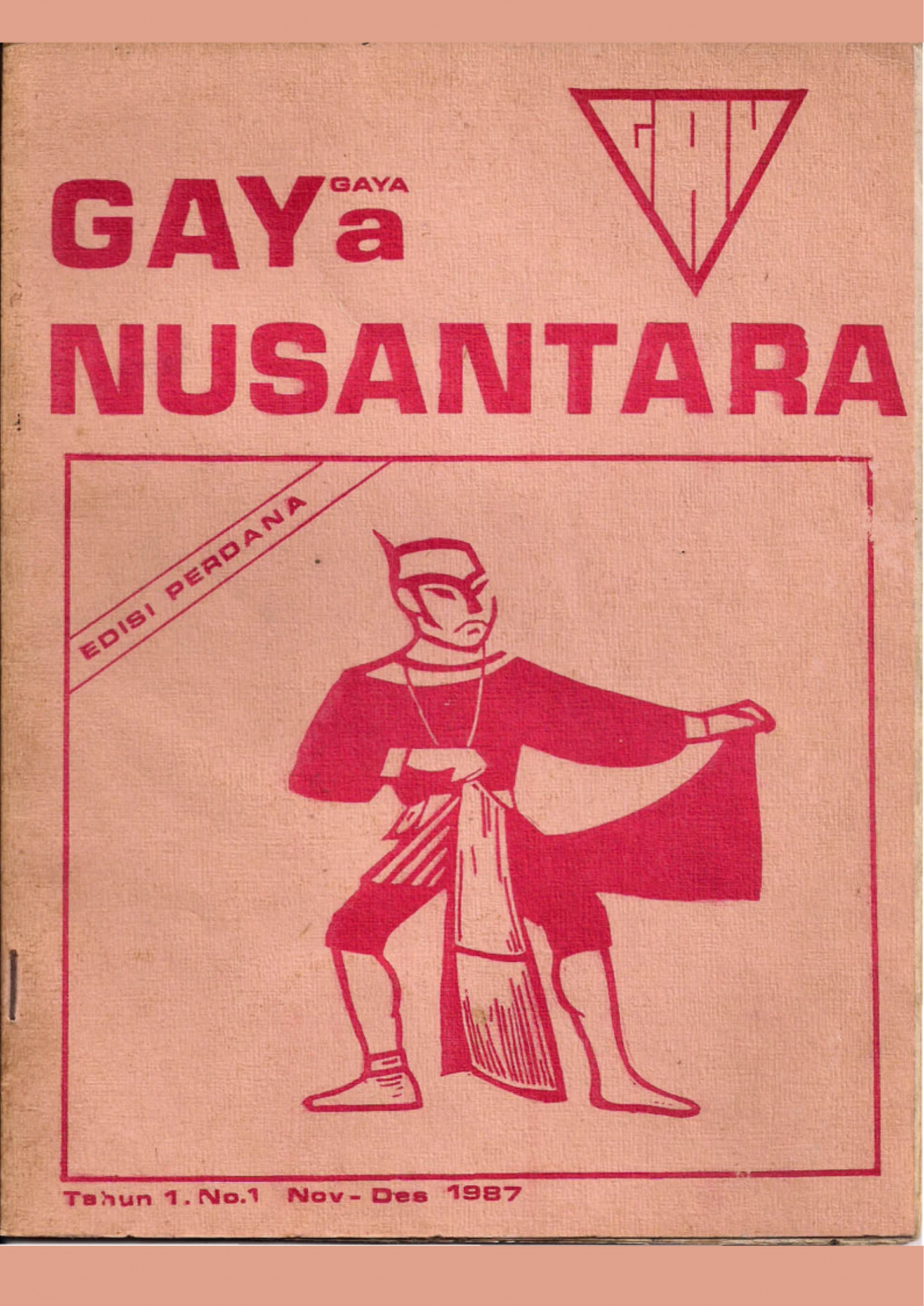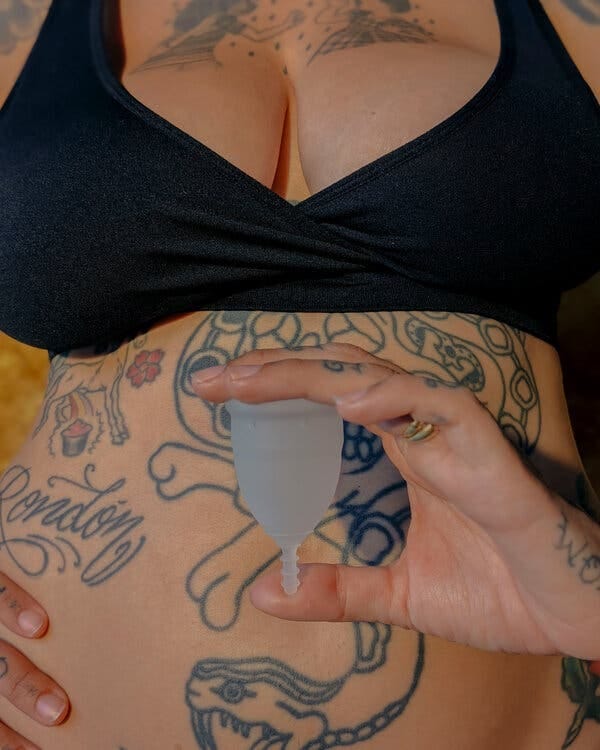Global Roundup: Digitalizing Indonesian Queer History, Women vs GBV in Zimbabwe, Abortion-related crimes in El Salvador, Book &Exhibition on Birth, Fertility & Parenthood, Queer Kinship in Photos
Compiled by Samiha Hossain
An old issue of GAYA NUSANTARA, one of the more prominent LGBTQ zines in Indonesia. Courtesty of GAYA NUSANTARA via VICE
A new non-profit, the Queer Indonesian Archive, is digitalizing vintage queer zines called Gaya Hidup Ceria (Happy Lifestyle) in order to preserve and celebrate the country’s LGBTQ history. Jusup Jhonny Rianto, 62, subscribed to Hidup Ceria in 1982 and through the zine’s articles and personal ads, he found his first partner, a new community, and gained confidence to come out.
Writer and scholar Dede Oetomo, who founded the country’s longest-running queer magazine GAYa Nusantara, says that when the zines started circulating, they were dangerous to possess. Often, copies were borrowed from friends and burned immediately after they were read.
The goal is to make Indonesians aware that the queer movement in Indonesia has been around for a long time and is part of society. They are among us, working as civil servants, lecturers and others. They are part of the community and should be treated as part of the community. – Ais, co-founder of the Queer Indonesian Archive
Same-sex relations are not illegal in Indonesia, but rights groups have documented escalating crackdowns on the LGBTQ community in recent years. According to a Pew Research Center poll from last year, only 9% of Indonesians surveyed agreed that homosexuality should be accepted by society.
The archive wants to also create oral histories podcasts and collect archived material from more remote queer communities in Indonesia. Activists believe that more queer material on the internet will help fight the rampant discrimination. However, challenges remain – for instance, in 2019, two campus journalists in Medan were threatened with expulsion from the University of North Sumatra after publishing a short story that was accused of “promoting homosexuality.”
Amek runs Cangkang Queer, a group that posts information for the LGBTQ community in Medan on Instagram. Amek wants to create a documentary on YouTube about the queer community’s experiences during the COVID-19 pandemic and thinks the internet is a fast, efficient way to reach wide audiences now.
The important thing is now the goal is the same, what is being fought for is still the same as before. - Amek
Marginalized communities including the LGBTQ community don’t have the privilege of seeing their stories or histories in books or the mainstream media. This erasure is yet another way the patriarchy tries to push LGBTQ+ people to the margins. The Queer Indonesian Archive and activists are doing important work in documenting queer history, which will undoubtedly inspire future generations to find community and continue the fight.
--—————————
Yvonne Zimuto sits on a chair at her friend's house in Mutare, Zimbabwe. May 22, 2021. Thomson Reuters Foundation/Farai Shawn Matiashe
At least one in three women in Zimbabwe encounters physical violence, most at the hands of a husband or partner, and the COVID-19 pandemic has only exacerbated this issue. The national gender-based violence hotline answered almost 7,000 calls from mostly women in distress in 2020 – a staggering 40% increase from the previous year.
Yvonne Zimuto (not her real name), a 42-year-old unemployed mother of three, did not even realize her husband had no right to abuse her until she visited a women's legal clinic in Mutare, where she learned her rights and how to report the abuse to the police.
I did not know that I have my rights as a woman...that I am protected by the law (but) acquiring education on my rights gave me the courage to seek help. Now if my rights are being violated I know which unit to report to at the police - Zimuto
The organizations Voluntary Service Overseas and Women and Law in Southern Africa (WLSA) banded together to support women like Zimuto with advice and legal aid. Since 2020, WLSA has helped more than 400 women with legal advice and is representing 16 women in court, a number expected to rise as lockdown restrictions ease. Zimuto didn’t want to press charges or divorce, she just wanted the abuse to stop, so she was referred to the police's Victim Friendly Unit, where counsellors mediated between the couple. She says that her husband has stopped abusing her since then and she has referred friends to the same service.
According to Caroline Gwatiringa, a communications officer at WLSA, financial challenges, cultural and religious values and family interference all prevent women from reporting and seeking justice through the courts. Ending gender-based violence will require addressing all these factors and their connection to patriarchy. But evidently women knowing their rights and how to use available services can go a long way in empowering them and stopping abuse.
--———————-
Sara Rogel, left, speaks during a press conference after being released from prison, in San Salvador on Tuesday. Photograph: Marvin Recinos/AFP/Getty Images via The Guardian
A woman in El Salvador has been released from prison after serving nearly a third of her 30-year sentence for a suspected abortion. The case has drawn international attention to the the region’s strict abortion ban.
Sara Rogel, 22-years-old at the time, was arrested in October 2012 after going to a hospital with bleeding injuries caused by what she said was a fall while carrying out chores at home. She was prosecuted and sentenced to 30 years in prison for killing her unborn daughter. The sentence was later reduced to 10 years.
She was deprived of freedom for almost nine years, in a sentence we believed was unfairly given. – Karla Vaquerano, Rogel’s lawyer of the pro-abortion rights group ACDATEE
There are dozens of women imprisoned in El Salvador for abortion related crimes. Since 1998, abortion has been banned in the country even in cases of rape or if the mother’s life is in danger. Women’s rights groups have said that a lot of these imprisoned women come from poor, rural areas and experienced obstetric emergencies, not abortions.
Sara never deserved to be in prison. While in mourning for the heartbreaking loss of her pregnancy, Sara should have been with her family. Instead, she was unjustly imprisoned for nine years. - Morena Herrera, feminist activist
Rogel’s release comes as Latin America is seeing increasing abortion rights movements led by feminists— a “green wave.” After a decades-long fight by women’s rights advocates in Argentina, the country’s senate in December legalised abortion, while Ecuador decriminalised abortion in cases of rape in April.
Otherwise, across the region abortions are available on-demand only in Cuba, Uruguay and in some parts of Mexico.
It is horrific that not only can women not freely get abortions in El Salvador, some may falsely get convicted of getting one. Feminists in South America and around the world demand that abortion be a right that is accessible to all.
--——————-
Natalia Mantini for The New York Times
A team of design curators, health care practitioners and advocates have created a new book and exhibition series, “Designing Motherhood: Things That Make and Break Our Births,” to highlight objects that have remained hidden for so long despite being a part of the everyday existence of many people. Objects include the menstrual cup, the breast pump, the speculum and the IUD. These are devices that are not traditionally valued for their aesthetic or how the designs came to be.
These objects are often used by people who have not had the power to write history, make decisions or frame material culture. They have just not been part of the conversation, out loud, until recently. - Michelle Millar Fisher, a curator of contemporary decorative arts at the Museum of Fine Arts, Boston
“Designing Motherhood” begins with a small exhibition, which opened in Philadelphia in May at the Mütter Museum, a medical museum known for its collection of anatomical oddities. A larger exhibition is to open in September at the Center for Architecture and Design in Philadelphia. The book will be out in September with sections on reproduction, pregnancy, birth and postpartum life.
Museums neglecting designed objects that address the needs of women's bodies is not an accident. Rather, it’s symptomatic of an historically male dominated curatorial and industrial design field; of a culture that prioritizes fantasy over biology; that privatizes birth; that commodifies women's bodies. Design museums are in a unique position to illuminate social and historical inequities and advancements through product innovation, but still hesitate. - Alexandra Cunningham Cameron, curator of contemporary design at the Cooper Hewitt, Smithsonian Design Museum
The exhibition and book highlight an interesting array of objects that are often depicted as shameful and private. Through exploring history, design and function, it raises important questions on whose needs are prioritized when it comes to comfort and accessibility.
-—————-
“KIN, 2017” Photo: Mengwen Cao/TRNK via The Cut
Tariq Dixon, the co-founder of the home-furnishing studio TRNK, has a new curation during Pride Month, building upon Dixon’s exhibition last year, Mien, which uplifts Black and brown queer voices.
It’s about celebrating the nuances and diversity of queer identity, beyond mainstream understandings and depictions. The topic of Chosen, which centers the ways queer people have redefined family beyond biology, felt especially timely after the year we’ve all just endured. - Dixon
The new exhibition, Chosen, showcases chosen families within the LGBTQ+ space, showing everyday acts of love and intimacy. It features work from eight queer artists of color: Myles Loftin, Coyote Park, Clifford Price King, Groana Melendez, Golden, Alexis Ruiseco-Lombero, Mengwen Cao, and Ka-Man Tse.
Being both queer and of color, merely living our truths is an inherently political act. But that shouldn’t be the case. The more we amplify these voices and celebrate the ways in which these artists (and larger queer communities) are reshaping the world, the sooner we’ll all get to enjoy a safer, more loving, and inclusive society. – Tariq Dixon
Many LGBTQ+ people rely on chosen families, particularly those that are Black and brown, as they may not be accepted by their biological family. Dixon has created a beautiful exhibition that celebrates chosen families and the love, joy and tenderness found within them.
——————————
Samiha Hossain (she/her) is a student at the University of Ottawa. She has experience working with survivors of sexual violence in her community, as well as conducting research on gender-based violence. A lot of her time is spent learning about and critically engaging with intersectional feminism, transformative justice and disability justice.
Samiha firmly believes in the power of connecting with people and listening to their stories to create solidarity and heal as a community. She refuses to let anyone thwart her imagination when it comes to envisioning a radically different future full of care webs, nurturance and collective liberation.






